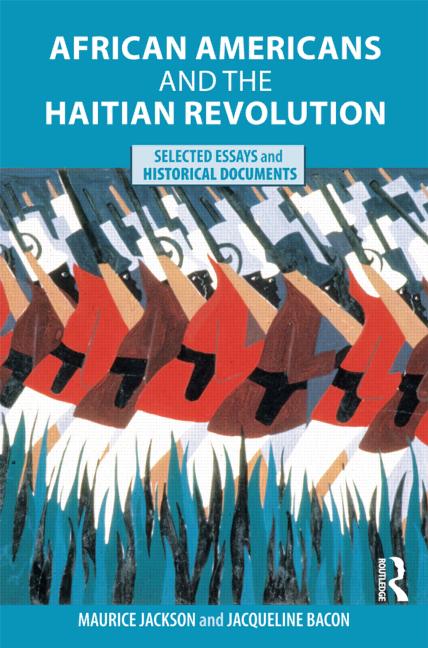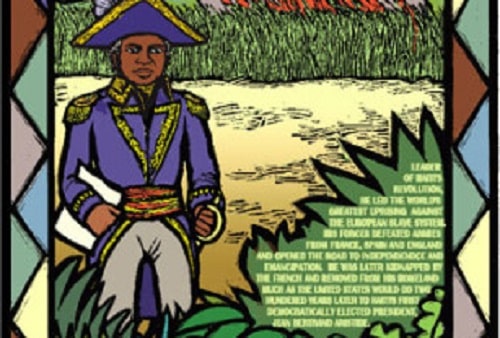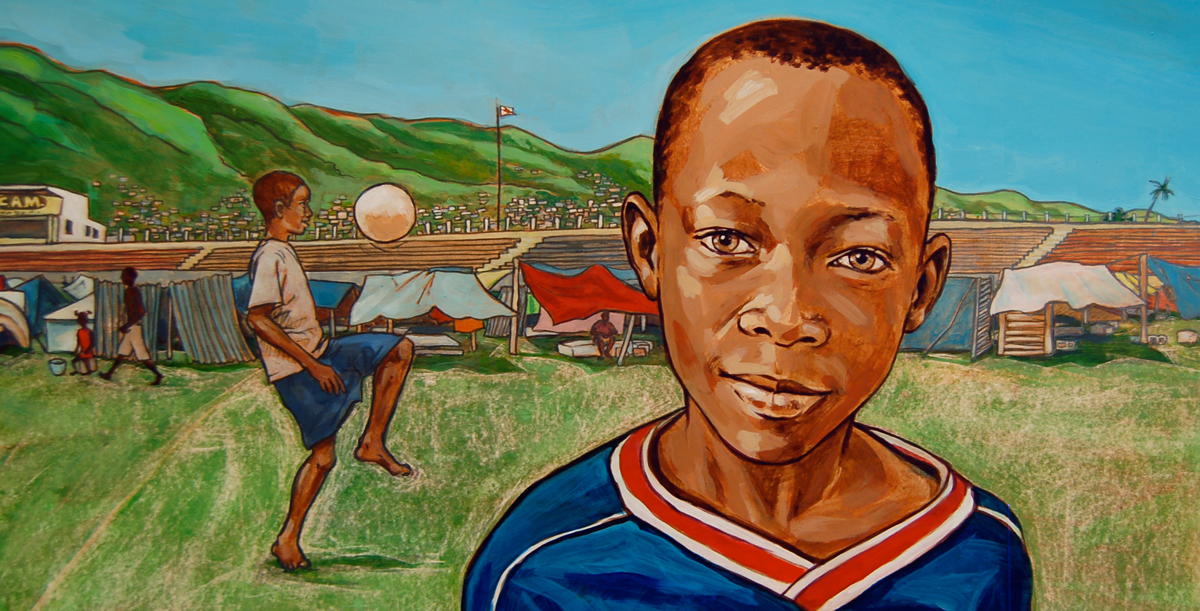
Haiti, by Ricardo Levins Morales
In the face of libelous hate speech about Haitian Americans, it is important to teach outside the textbook about Haiti’s history, current events, and immigration.
Seldom do we see Haiti in the news without the word “crisis.” It is important for young people to learn about the roots of the crisis and the long history of resistance.
They should also learn that Haiti’s revolution of independence was the only one in the western hemisphere to result in freedom from tyranny for ALL people.
In the two-minute Choices video below, historian Kellie Carter Jackson describes the impact of the Haitian Revolution on the abolition movement in the United States. Jackson called Haiti “a radical reimagining of what freedom could be — a world without slavery, a world where the oppressed could claim their humanity.”
Howard Zinn said in his last interview:
Students should learn that the relationship between Haiti and the United States has been the relationship of an oppressed colony to an imperial power.
Resources
Recommended books on Haiti for K–12 students and educators from Teaching for Change’s Social Justice Books.
Tè Tremblé: An Unnatural Disaster: A Trial Role Play Probes the Roots of Devastation in Haiti by Adam Sanchez. A role play in the form of a trial asks students to question the role played by the U.S. government and other international actors in the 2010 earthquake.
Shock-Doctrine Schooling in Haiti: Neoliberalism off the Richter Scale by Jesse Hagopian. Published in the Rethinking Schools book, Teaching for Black Lives.
Biden’s border policies target Haitians. That’s no accident by Leslie M. Alexander. Washington Post article about the long history undergirding harsh bipartisan migration policies.
Democracy Now! news segments on Haiti and Haitian-Americans. Excellent interviews and analysis for the classroom.


















Twitter
Google plus
LinkedIn